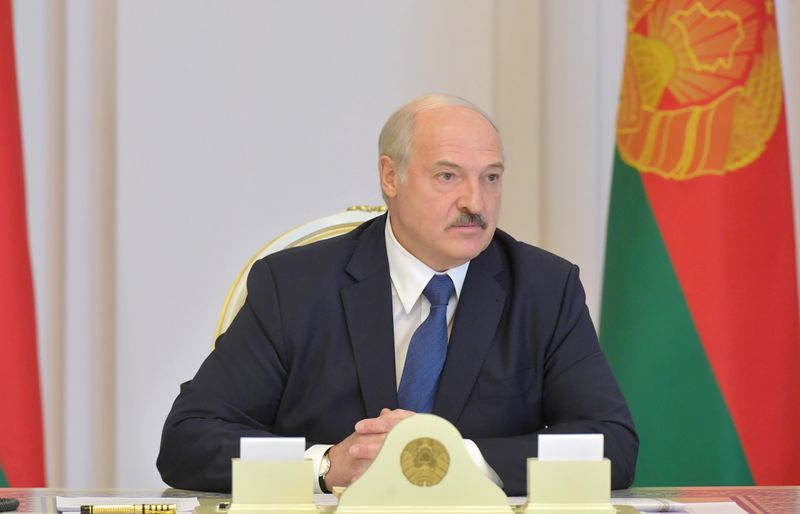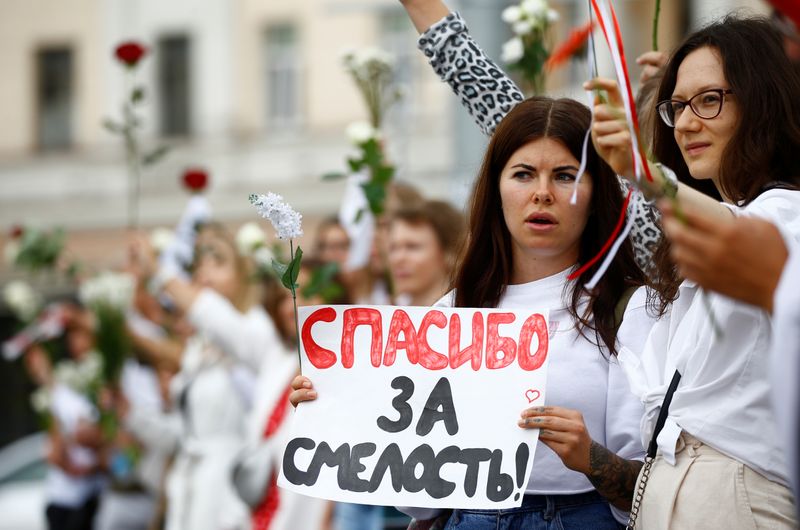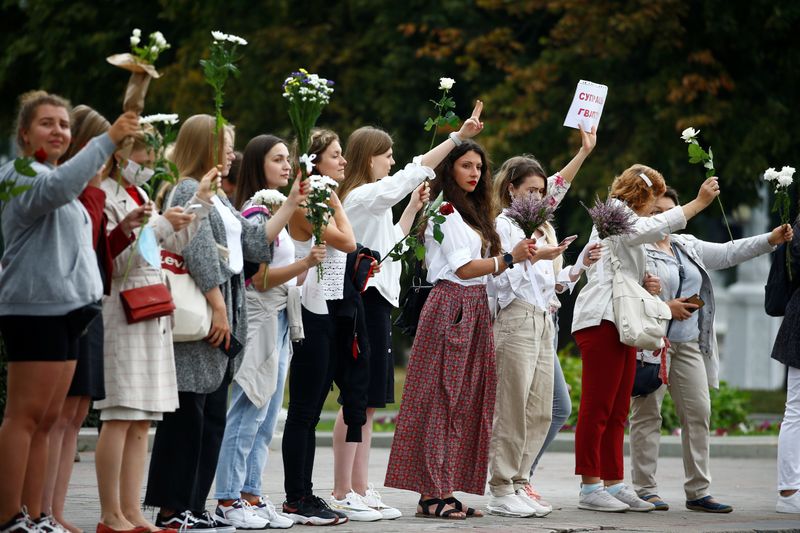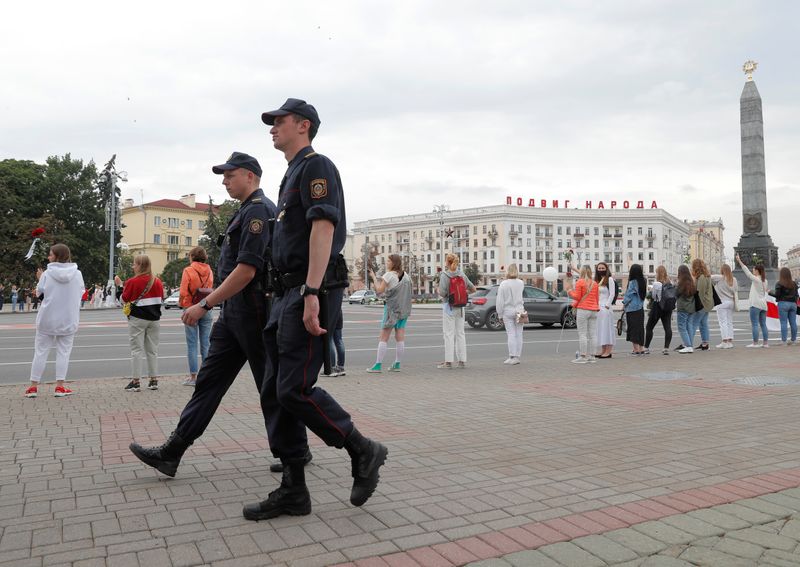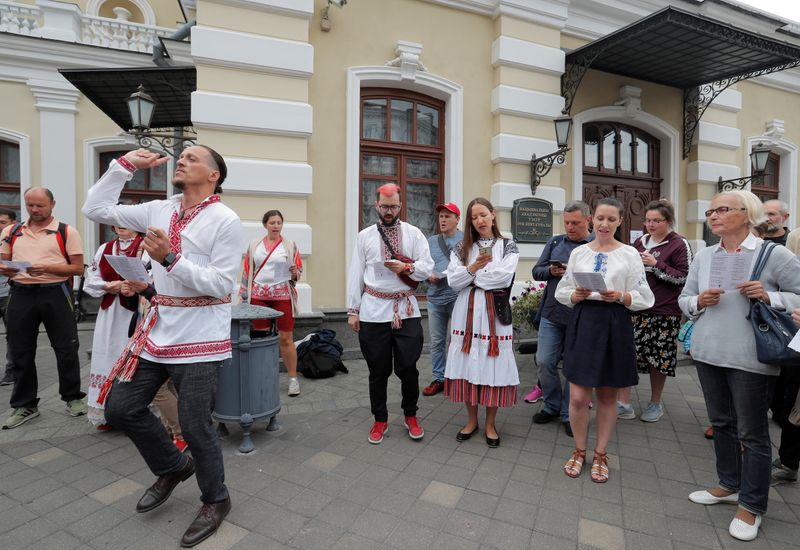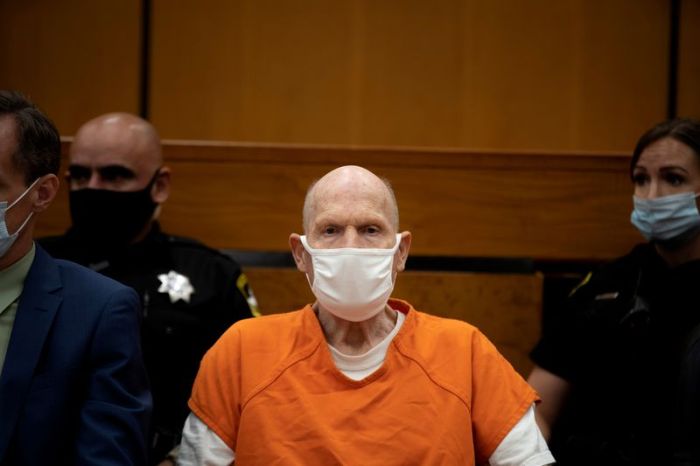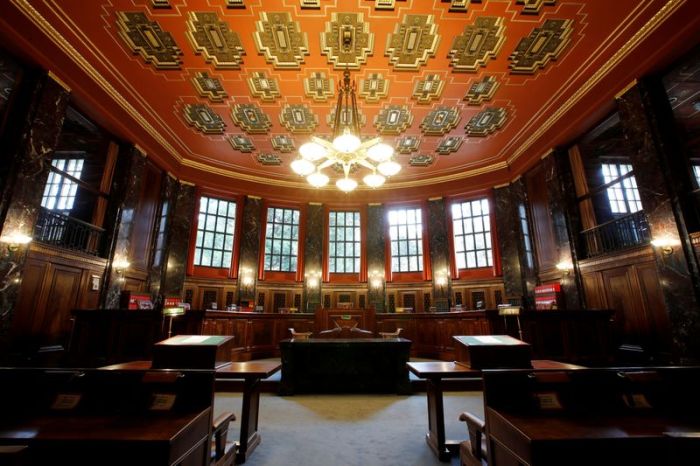MINSK (Reuters) – Belarus launched a criminal case on Thursday against a new opposition body, accusing it of an illegal attempt to seize power, a day after President Alexander Lukashenko threatened to sweep the streets of protesters who reject his re-election.
Belarus is facing its biggest political crisis since the breakup of the Soviet Union, with tens of thousands of demonstrators rejecting Lukashenko’s victory in an Aug. 9 vote his opponents say was rigged.
Opponents of Lukashenko, who has been in power for 26 years, unveiled the Coordination Council on Tuesday with the stated aim of negotiating a transfer of power.
Its dozens of members include a Nobel Prize-winning author and the ousted head of Minsk’s main drama theatre, as well as exiled presidential candidate Sviatlana Tsikhanouskaya, whose followers say she won the election.
The general prosecutor’s office described the body as designed to seize power, and the act of setting it up a threat to national security, Russia’s RIA news agency reported. No individuals were named as suspects in the case.
The council said one of its members, Maksim Znak, had been summoned to appear at the Investigative Committee on Friday over the criminal case. It issued a statement saying its efforts were lawful.
“The accusation is completely baseless and without foundation. Our goal is to resolve the crisis without conflict. We are not calling for the seizure of power,” council member Syarhei Dyleuski, leader of a committee of striking workers at the Minsk Tractor Factory, told Reuters.
SWITCH SIDES
After days of huge rallies drawing tens of thousands of demonstrators, protests were diminished on Thursday but not halted.
Lukashenko announced on Wednesday he had ordered police to clear the streets of the capital, although no action was taken against hundreds of protesters who staged a rally in front of the police headquarters later that day. By lunchtime on Thursday there was still no sign of a decisive security operation.
In a video message, one of the opposition leaders, Maria Kolesnikova, called on security force members to refuse to obey “illegal orders”, and promised immunity from prosecution if they “switch to the side of the people”.
Outside the Janka Kupala National Theatre, which has become a focus of rallies since its director was fired for backing the protests and the entire troupe of actors resigned, a group of folk singers were joined by a small crowd in a singalong.
“Now, no one can simply stay silent, sit at home, observe the mayhem and watch how our people are being killed,” said musician Sergei Dolgushayev.
Bigger rallies are expected again over the weekend.
OPPOSITION CANDIDATE
Tsikhanouskaya, a 37-year-old political novice, emerged as the consensus opposition candidate after better-known figures were barred from standing, including her husband, an activist who has been jailed since May.
Since the vote, she has fled to neighbouring Lithuania, issuing videos calling for her supporters to rise up peacefully. Lithuania’s Prime Minister Saulius Skvernelis met her at his office in Vilnius on Thursday.
He “assured her that the government, together with its partners in Poland, Latvia and Estonia, are doing and will do everything so that there are free and fair elections in Belarus, and so that her children could as soon as possible hug their dad in freedom,” he wrote on Facebook.
That drew a thinly veiled rebuke from the Kremlin, which said Moscow would view any contact between foreign officials and the Belarus opposition as interference in Belarusian affairs.
The crisis in Belarus, Russia’s most loyal neighbour, is a test for the Kremlin, which has to decide whether to try to manage a transfer of power or stick with Lukashenko, the gruff one-time boss of a collective farm in the Soviet era.
It also poses a challenge to Western leaders, wary of violence six years after a popular uprising in neighbouring Ukraine drew Russian military intervention and triggered Europe’s deadliest ongoing conflict.
The EU has rejected Lukashenko’s re-election and EU summit chairman Charles Michel spoke with President Vladimir Putin on Thursday, the latest of several phone calls between Putin and European leaders this week. The Kremlin said Putin had told Michel that pressure on Lukashenko would be counter-productive.
Of all Russia’s former Soviet neighbours, Belarus has the closest political, economic and cultural relationship to Moscow, and its heavily fortified borders with Latvia, Lithuania and Poland are major frontiers of NATO.
(Additional reporting by Vladimir Kostin in Minsk; Writing by Peter Graff; Editing by Frances Kerry)

